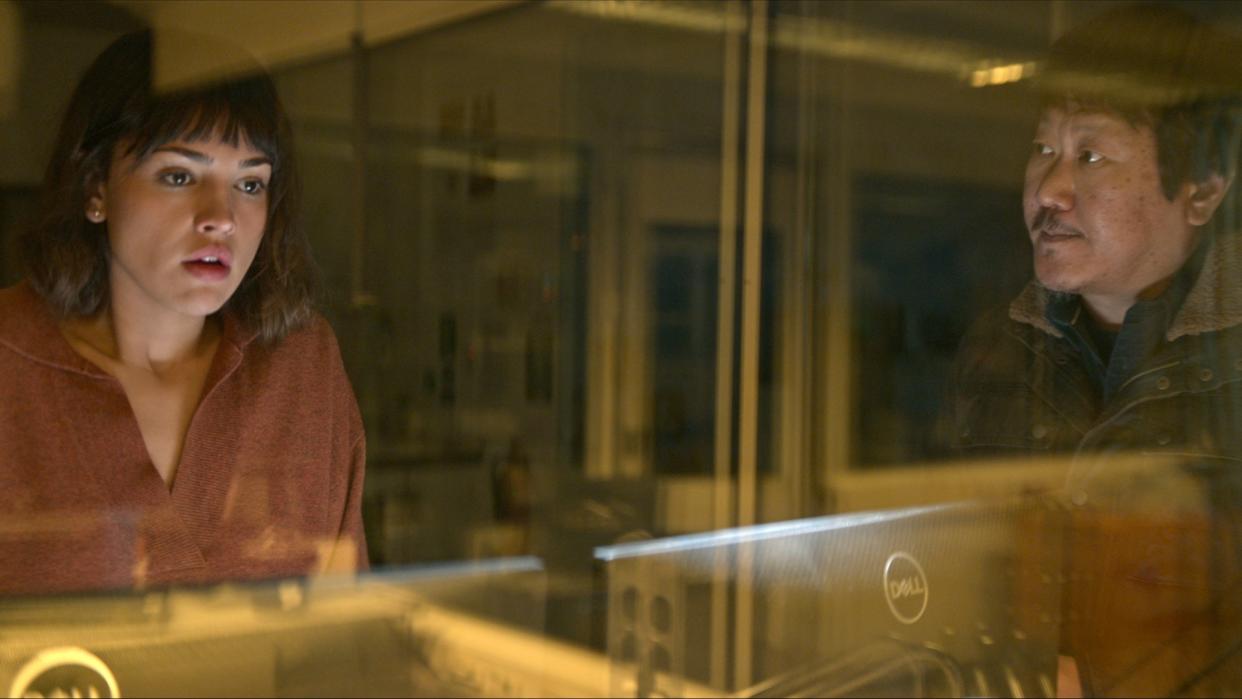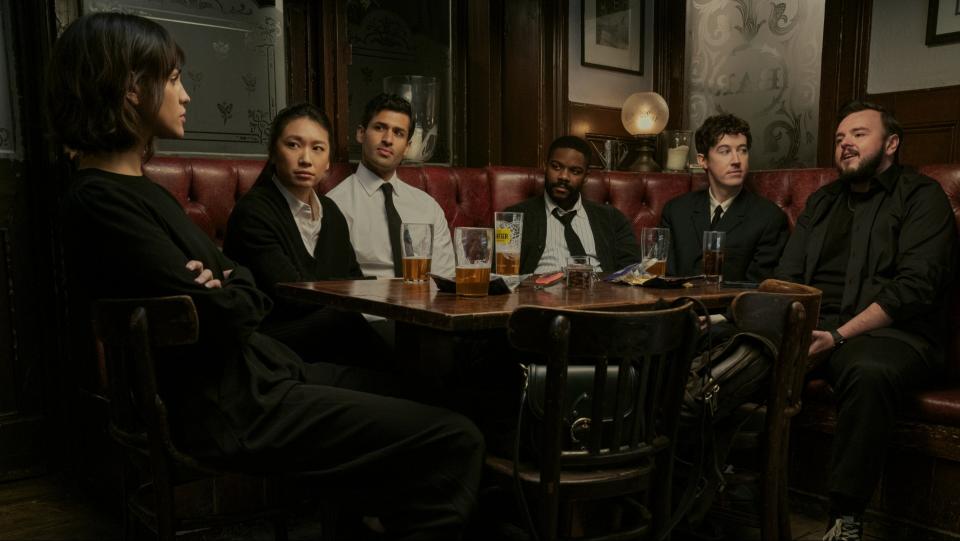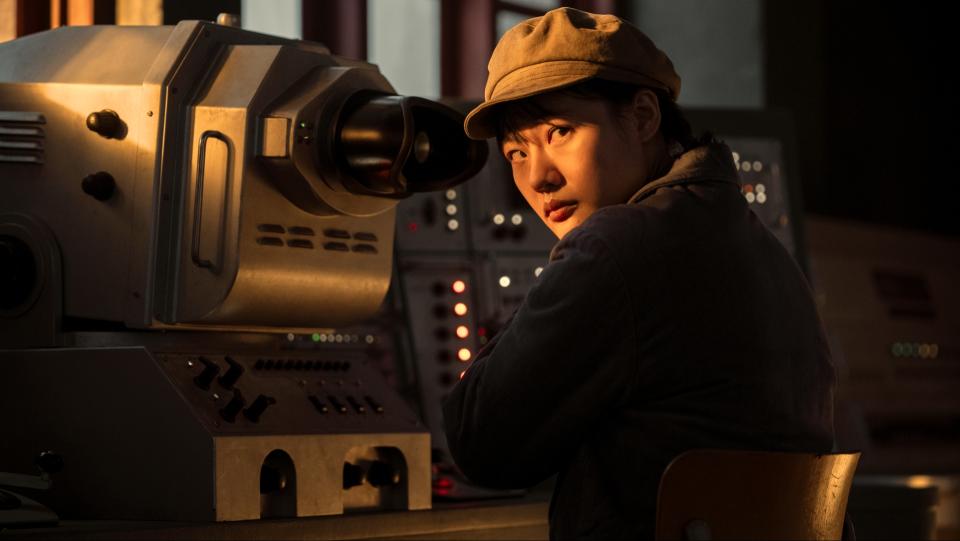3 Body Problem review: "A solid sci-fi premise is weighed down by a clunky script"

David Benioff and D.B. Weiss' first post-Game of Thrones project was always going to have a lot to live up to. Their HBO fantasy epic was a critical and commercial success – until it wasn't. The beloved long-running series suffered from a massively unpopular final season, so the showrunners walk a difficult line: audiences know what they're capable of at their best, but also their worst. No pressure, then.
For Netflix's 3 Body Problem, the pair teamed up with Alexander Woo, whose previous TV work includes writing and producing for shows like True Blood and The Terror. And they had a lot on their plate: the show is an adaptation of the award-winning Chinese novel 'The Three-Body Problem' by engineer-turned-author Liu Cixin, which is the first part in a multi-timeline trilogy.
The story starts off in '60s China in the midst of the Cultural Revolution, as a young woman, Ye Wenjie (Zine Tseng), watches her physicist father publicly and brutally beaten to death. Soon after, we're introduced to a group of characters in present-day London: five scientists who are reunited after their former Oxford professor, Vera (Vedette Lim), dies by suicide.
There's Augustina, or Auggie (Eiza González), who founded a groundbreaking nanotechnology company, Saul (Jovan Adepo), Vera's research assistant, whose latest project stalled right before her death after it started to produce nonsensical data, Jin (Jess Hong), a talented theoretical physicist, Will (Alex Sharp), a shy science teacher, and Jack (John Bradley), a millionaire who dropped out of their university course to start a snack business – and, presumably, get much, much more annoying.

The problem with this group is that it's hard to believe that they've even been in the same room before, let alone have any kind of shared history. Right off the bat, we get hints of an on-again-off-again relationship and a long-standing unrequited love, but only because we're told outright. This is a script that pays no mind to the 'show, don't tell' mantra.
But back to the plot. Soon after Vera's death, Auggie starts to see a flashing countdown seemingly seared onto her retinas – and it transpires that she's not the only one. No-nonsense intelligence agent Clarence (Benedict Wong) is investigating a string of scientist suicides around the world for a mysterious intelligence organization and during one of his site visits we see a countdown scrawled across the walls of a recently deceased professor. Auggie's affliction comes to his attention, and Clarence starts keeping a close eye on the group.
Wong is trying his best as Clarence, giving one of the show's strongest performances and generating genuine laughs with his delivery. Clarence's boss, Wade (Liam Cunningham), however, is Life on Mars' Gene Hunt on steroids, throwing out swear words and slurs in a way that gets tiresome pretty fast. It's not just Wade afflicted with this, either: clunky dialogue functioning as exposition plagues the entire series. And let's be honest, the only actor I want to hear seriously deliver a line like "science is broken" is Jason Statham.
Wenjie's storyline, taking us through the '60s and '70s, is the most interesting part of the show – after her father's murder, she's taken to a Mongolian prison camp, before she's recruited to work in a scientific career at a military base. But things aren't all as they seem at the base, and it soon becomes clear that the whole story lives and dies around Wenjie and a single choice she makes. As the series progresses, the script peels back the layers of her character, uncovering her motivations and exploring her disillusionment with the world and the social and political factors – and ramifications – of her decisions. She's the most interesting character in the show, and it's a shame we don't get to spend more time with her.

Instead, more often than not, we're made to follow the present-day storyline. The 2024 plot threads take us between London, Oxford, and the Sussex coast, but the English setting feels inconsequential and at times nonsensical: why is a character hit by a self-driving car on the streets of Oxford? Why are so many people armed with handguns and pistols? In a show that wants us to believe in its high-concept scientific propositions, it feels silly to be sloppy with much simpler plot details.
The series finds its feet in the final few episodes as it fully commits to the sci-fi elements of the story, moving away from interpersonal (and, often, inconsequential) character drama and actually bringing its key players into the story. There's a handful of truly chilling sequences and one particularly jaw-dropping scene (none of which we're allowed to go into any more detail about here) in the last three episodes – the stakes finally feel lofty enough to match the world-changing subject material, which makes it a hell of a lot easier to tag along for the ride. It's just a shame it takes so long to get there.
The concepts that 3 Body Problem plays with are genuinely pretty cool, and could be setting the stage for something impressive if the show is commissioned for a second season. It's grounded in a solid sci-fi premise, but continually weighed down by flat, often two-dimensional characters and a weak script. It's trying to spin too many plates with too many threads, and eight episodes just aren’t enough to explore all of the different relationships – or, crucially, to get us invested in them. It's only if we get season 2 that we'll know for sure if 3 Body Problem takes flight or crashes and burns.
3 Body Problem arrives on Netflix on March 21. In the meantime, check out our picks of the best Netflix shows streaming now.
